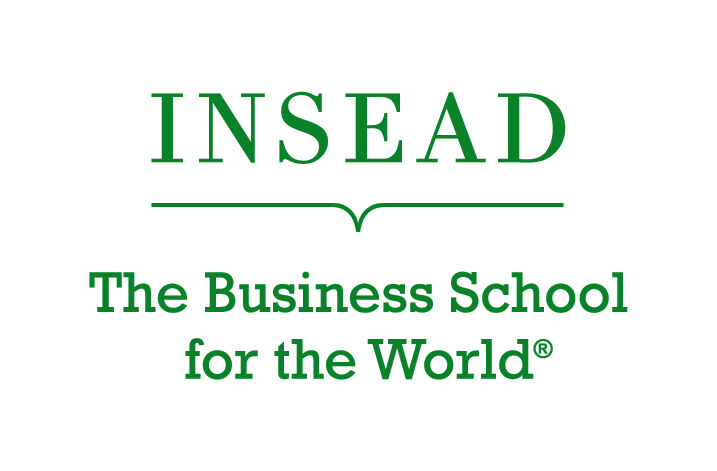- Leadership
Preparing Women Leaders for the Top
How INSEAD is helping senior women executives fulfil their true leadership potential
With women at the head of Europe’s two largest economies, it is interesting to note that INSEAD, one of the world's leading business schools, is running a world-class leadership program exclusively for women. Sadly, May and Merkel are exceptions that do not prove the rule. The proportion of women in senior executive ranks remains obstinately low and the Women Leaders Programme at INSEAD aims to help organizations address this issue.
The reason helping women reach and succeed in senior roles really matters is not just because it is fair and good for the individual female executives. It matters because it is good for the corporate bottom line too. There is a raft of compelling evidence that the more gender diversity in the senior management ranks the higher the organizational performance, with creativity, decision making, and corporate culture all improved.
Over the past decade, there have been undeniable changes in attitudes towards gender equality in advanced societies. Women film directors abound, women’s sport is more regularly covered, women’s voices generally are being heard in a way they shamefully weren’t in the past, and in the junior to middle ranks of the corporate world young women executives are gaining parity. Yet women are lagging behind when it comes to promotion to the most senior posts.
So why are too few women failing to get the top jobs? Previously it was thought to be a matter of generational change. In the feminist 1970s and 80s this argument held, but 40+ years on for women now in their forties and eligible for senior roles this cannot still be the reason.
Jennifer Petriglieri, Assistant Professor of Organizational Behaviour at INSEAD points to the range of factors holding women back – bias in organizations, lack of role models, ingrained false beliefs that women are fundamentally different from men, and structural challenges all abound. First she says “Women get to a position where numbers drop off and they have fewer role models. With fewer peers to form a developmental network it's harder to find mentors and sponsors.”
Secondly, says Petriglieri “There's also an issue of bias. Overt bias thankfully is decreasing in most organizations. However, there's lots of unconscious bias.” She sites as an example the tendency of companies to nudge women returning from maternity into less demanding support roles away from leading major projects. Outwardly this appears to be a considerate approach but actually it can be very damaging to women’s career progress.
On the positive side, the issue is rising up the corporate agenda, and there has been a significant increase in the number of women appointed to the boards of publicly quoted companies. However, the story across the wider spectrum of business remains poor. According to Deloitte's 2017 global survey, women hold 15% of seats on corporate boards worldwide, only a modest increase from 12% in 2015, with only 4% chairing boards. (Data from Deloitte shows board seats held by women as: France 34.0%, Germany 17.0%, UK 29.2%, USA 14.2%, India 11.2%, China 9.2%, and Japan 3.5%.)
“Even in those organizations who are really trying to push this issue the proportions are still quite low,” says Petriglieri. “When we look at the senior ranks of executives in organizations the proportion of women has actually stayed quite constant over the last 10 years and this is the area we're really trying to target.” The result she sees is that without women in key leadership positions to act as role models and mentors to aspiring women it is very hard for organizations to achieve gender parity amongst their senior executives and to gain the performance benefits that come with it.
INSEAD’s Women Leaders Programme, led by Petriglieri, aims to help organizations drive up the number of women reaching the top by providing a space where senior women can come together and hone their leadership skills and prepare to transition to the top leadership roles. The program is aimed at women with at least 15 years’ experience, vice president level or equivalent and above; women who are already butting up against the challenges of career progression, and to bring that group together and create a peer group among them.
The INSEAD Women Leaders Programme has three distinct themes:
Personalization – this is about focusing on each participant’s particular aspirations in context and on their related learning and development needs.
Cutting edge thought-leadership – access to world-class experts ensures participants come away inspired by and armed with powerful new ideas which they can apply in their own organizations.,
Peer group learning network – participants will leave the program with a network of like-minded peers and INSEAD faculty who will be there to offer ongoing support as their leadership journey takes them to the top.
As one of the world’s leading and largest graduate business schools, INSEAD brings together people, cultures and ideas from around the world to change lives and to transform organisations.
ARTICLES YOU MIGHT LIKE
RESEARCH
Why organizational resilience requires adaptive leadership particularly in times of crisis
DEVELOPING LEADERS QUARTERLY MAGAZINE AND WEEKLY BRIEFING EMAILS


































